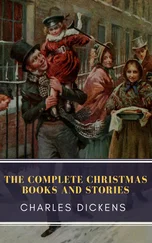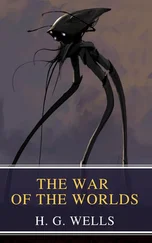Enter Beatrice.
Sweet Beatrice, wouldst thou come when I call’d thee?
Beat. Yea, signior, and depart when you bid me.
Bene. O, stay but till then!
Beat. ‘Then’ is spoken; fare you well now. And yet ere I go, let me go with that I came, which is, with knowing what hath pass’d between you and Claudio.
Bene. Only foul words—and thereupon I will kiss thee.
Beat. Foul words is but foul wind, and foul wind is but foul breath, and foul breath is noisome; therefore I will depart unkiss’d.
Bene. Thou hast frighted the word out of his right sense, so forcible is thy wit. But I must tell thee plainly, Claudio undergoes my challenge, and either I must shortly hear from him, or I will subscribe him a coward. And I pray thee now tell me, for which of my bad parts didst thou first fall in love with me?
Beat. For them all together, which maintain’d so politic a state of evil that they will not admit any good part to intermingle with them. But for which of my good parts did you first suffer love for me?
Bene. Suffer love! a good epithite! I do suffer love indeed, for I love thee against my will.
Beat. In spite of your heart, I think. Alas, poor heart, if you spite it for my sake, I will spite it for yours, for I will never love that which my friend hates.
Bene. Thou and I are too wise to woo peaceably.
Beat. It appears not in this confession; there’s not one wise man among twenty that will praise himself.
Bene. An old, an old instance, Beatrice, that liv’d in the time of good neighbors. If a man do not erect in this age his own tomb ere he dies, he shall live no longer in monument than the bell rings and the widow weeps.
Beat. And how long is that, think you?
Bene. Question: why, an hour in clamor and a quarter in rheum; therefore is it most expedient for the wise, if Don Worm (his conscience) find no impediment to the contrary, to be the trumpet of his own virtues, as I am to myself. So much for praising myself, who I myself will bear witness is praiseworthy. And now tell me, how doth your cousin?
Beat. Very ill.
Bene. And how do you?
Beat. Very ill too.
Bene. Serve God, love me, and mend. There will I leave you too, for here comes one in haste.
Enter Ursula.
Urs. Madam, you must come to your uncle, yonder’s old coil at home. It is prov’d my Lady Hero hath been falsely accus’d, the Prince and Claudio mightily abus’d, and Don John is the author of all, who is fled and gone. Will you come presently?
Beat. Will you go hear this news, signior?
Bene. I will live in thy heart, die in thy lap, and be buried in thy eyes; and moreover I will go with thee to thy uncle’s.
Exeunt.
¶
Enter Claudio, Prince [Don Pedro], and three or four with tapers.
Claud. Is this the monument of Leonato?
[A] Lord. It is, my lord.
[Claud. Reading out of a scroll.]
Epitaph
“Done to death by slanderous tongues
Was the Hero that here lies.
Death, in guerdon of her wrongs,
Gives her fame which never dies.
So the life that died with shame
Lives in death with glorious fame.”
Hang thou there upon the tomb,
[Hangs up the scroll.]
Praising her when I am [dumb].
Now, music, sound, and sing your solemn hymn.
Song
Pardon, goddess of the night,
Those that slew thy virgin knight,
For the which, with songs of woe,
Round about her tomb they go.
Midnight, assist our moan,
Help us to sigh and groan,
Heavily, heavily.
Graves, yawn and yield your dead,
Till death be uttered,
Heavily, heavily.
[Claud.]
Now, unto thy bones good night!
Yearly will I do this rite.
D. Pedro.
Good morrow, masters, put your torches out.
The wolves have preyed, and look, the gentle day,
Before the wheels of Phoebus, round about
Dapples the drowsy east with spots of grey.
Thanks to you all, and leave us. Fare you well.
Claud.
Good morrow, masters—each his several way.
D. Pedro.
Come let us hence, and put on other weeds,
And then to Leonato’s we will go.
Claud.
And Hymen now with luckier issue speed’s
Than this for whom we rend’red up this woe.
Exeunt.
¶
Enter Leonato, Benedick, [Beatrice,] Margaret, Ursula, old man [Antonio], Friar [Francis], Hero.
Friar.
Did I not tell you she was innocent?
Leon.
So are the Prince and Claudio, who accus’d her
Upon the error that you heard debated.
But Margaret was in some fault for this,
Although against her will, as it appears
In the true course of all the question.
Ant.
Well, I am glad that all things sorts so well.
Bene.
And so am I, being else by faith enforc’d
To call young Claudio to a reckoning for it.
Leon.
Well, daughter, and you gentlewomen all,
Withdraw into a chamber by yourselves,
And when I send for you, come hither masked.
The Prince and Claudio promis’d by this hour
To visit me. You know your office, brother:
You must be father to your brother’s daughter,
And give her to young Claudio.
Exeunt Ladies.
Ant. Which I will do with confirm’d countenance.
Bene. Friar, I must entreat your pains, I think.
Friar. To do what, signior?
Bene.
To bind me, or undo me—one of them.
Signior Leonato, truth it is, good signior,
Your niece regards me with an eye of favor.
Leon.
That eye my daughter lent her, ’tis most true.
Bene.
And I do with an eye of love requite her.
Leon.
The sight whereof I think you had from me,
From Claudio, and the Prince. But what’s your will?
Bene.
Your answer, sir, is enigmatical,
But for my will, my will is your good will
May stand with ours, this day to be conjoin’d
In the state of honorable marriage,
In which, good friar, I shall desire your help.
Leon.
My heart is with your liking.
Friar.
And my help.
Here comes the Prince and Claudio.
Enter Prince [Don Pedro] and Claudio and two or three other.
D. Pedro.
Good morrow to this fair assembly.
Leon.
Good morrow, Prince; good morrow, Claudio;
We here attend you. Are you yet determined
To-day to marry with my brother’s daughter?
Claud.
I’ll hold my mind were she an Ethiope.
Leon.
Call her forth, brother, here’s the friar ready.
[Exit Antonio.]
D. Pedro.
Good morrow, Benedick. Why, what’s the matter,
That you have such a February face,
So full of frost, of storm, and cloudiness?
Claud.
I think he thinks upon the savage bull.
Tush, fear not, man, we’ll tip thy horns with gold,
And all Europa shall rejoice at thee,
As once Europa did at lusty Jove,
When he would play the noble beast in love.
Bene.
Bull Jove, sir, had an amiable low,
And some such strange bull leapt your father’s cow,
And got a calf in that same noble feat
Much like to you, for you have just his bleat.
Enter Brother [Antonio], Hero, Beatrice, Margaret, Ursula, [the ladies masked].
Читать дальше












![Уильям Шекспир - The Works of William Shakespeare [Cambridge Edition] [Vol. 1 of 9]](/books/746589/uilyam-shekspir-the-works-of-william-shakespeare-c-thumb.webp)